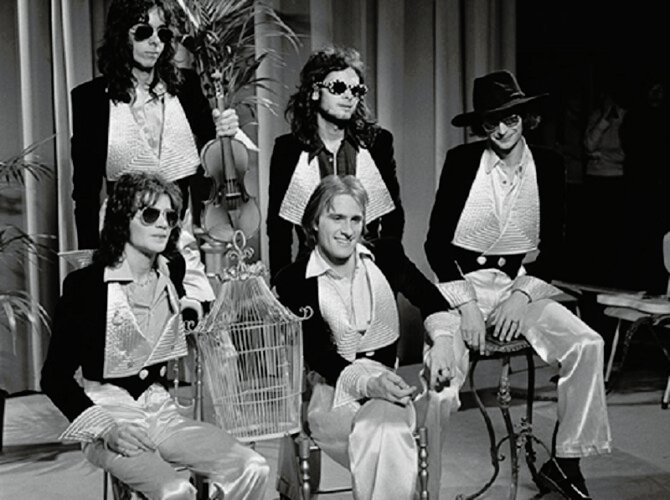A confident Cockney Rebel who made us smile
Whatever legacy Steve Harley may have left, one thing feels certain: That his single Make Me Smile (Come Up and See Me) from January 1975 will guarantee he is remembered.
Harley himself reckoned it had been covered more than 120 times by bands and artists that included Duran Duran. It has appeared in scores of movie soundtracks and in adverts, and remains one of the most-played songs in history.
Stephen Malcolm Ronald Nice, born in Deptford in 1951, died this week at the age of 73. His stage name is the one that endured long after his heyday as a pre-punk front man for his Cockney Rebels band, which formed in 1972.
The son of a milkman and a semi-professional jazz singer, in the case of his mum, Harley’s brush with polio at an early age did not throw him off his confident strides into musicianship. After attending the Edmund Waller Primary School in New Cross, he went to the nearby Haberdashers’ Aske’s Hatcham Boy’s Grammar.
He was a proper South Londoner.
After a spell as a local newspaper reporter, he threw himself fully into his music. The Cockney Rebels recorded five hit singles in the 1970s, and Harley was sure he was destined to a big noise in the music industry.
In a press interview given before any of those hits had arrived, he asserted that his band would be “a musical force that others will follow”.

Cockney Rebel, he predicted, would kick David Bowie “up the arse”: “he’ll say ‘I’ve got to step on it to stay at the top’.”
He added: “I feel like God’s touched me and said ‘here’s a mission and someone’s gotta do it’.”
In a neat summary of his musical genre, music writer Alexis Petrides wrote in the Guardian: “His voice was a mannered sneer that occasionally sounded a little like The Kinks’ Ray Davies and occasionally seemed to presage the arrival of punk – it was certainly the perfect fit for his lyrics, which were both thick with lurid imagery and big on withering disdain.”
The band fragmented after arguments over money, which was probably not helped by Harley wasting plenty on expensive hotels while on tour. Some of his bitterness towards his fellow band members is evident in Make Me Smile, with its spiteful lyrics fused so memorably with a catchy melody.
As with many artists, time and fashion can catch up, and when punk began to bite, Harley’s music seemed suddenly less in vogue.
He released a few singles and made a surprise return to the top 10 thanks to a duet with Sarah Brightman on the title song of Andrew Lloyd Webber’s The Phantom of the Opera, but, he always knew he’s be defined by ‘that song’ from 1975.
“I realise half the world and its grandmother think I wrote just that song,” he remarked. But he always felt his contribution to the music world stretched beyond that, saying of the Cockney Rebels’ critically-acclaimed album The Psychomodo: “I’d like to go to my grave believing no one in the world could have written those songs but me. No bragging there. I hear them and think ‘ah – that’s me’.”
He was still putting on live shows and touring after the pandemic, and had also been involved in racehorse ownership over the years, but announced in December last year that he had cancer.
He is survived by two children, Kerr and Greta, and wife Dorothy.
Pictured top: Harley on stage, doing what he loved most (Picture: Wikimedia Commons/Mark Kent)



